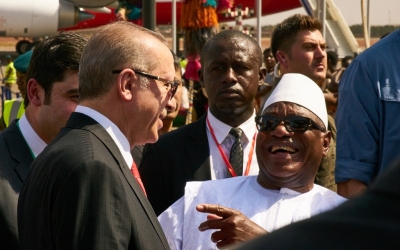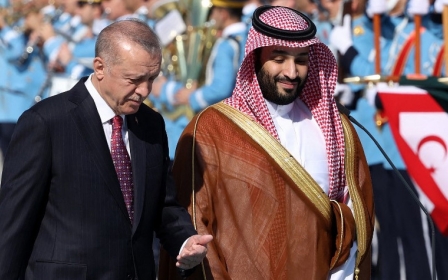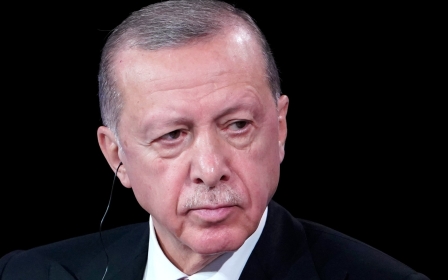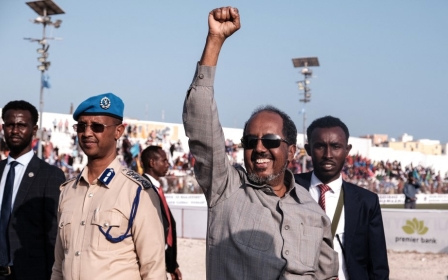Turkey-Somalia pact: Who stands to gain?
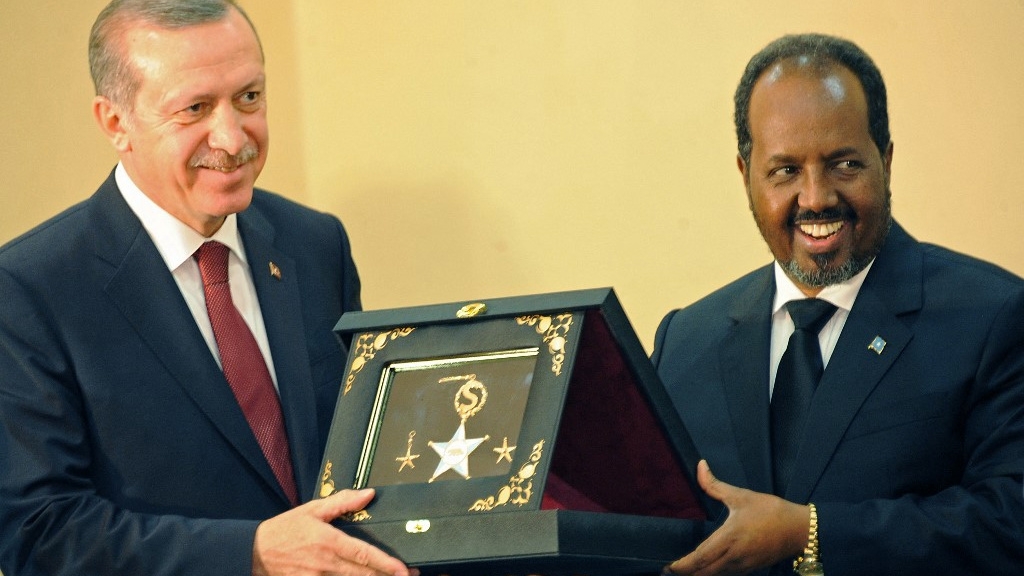
After the signing earlier this year of a memorandum of understanding between Ethiopia and the self-declared state of Somaliland, tensions have escalated in the Horn of Africa.
The agreement gives Ethiopia sea access and a military base in Somaliland, in exchange for Ethiopia’s potential future recognition of the state of Somaliland.
Somalia, fearing a threat to its territorial integrity from the breakaway region, has since embarked on a strategy reminiscent of a local proverb: “Be a mountain or lean on one.” It is now seeking to counterbalance Ethiopia by aligning itself with a “mountain” - a powerful ally - to safeguard its sovereignty.
Somalia has thus turned to Turkey, with the two nations recently signing an agreement on defence and economic cooperation. While the exact details have yet to be unveiled, Somali President Hassan Sheikh Mohamud said on Twitter/X that the deal “embodies a shared commitment to combating all forms of illegal activities and will enable us to build a capable naval force essential for our maritime security”.
He added: “The pact will also bolster our blue economy, develop crucial economic sectors, and create opportunities for our people and the region.”
After fighting a war with Ethiopia in the late 1970s, Somalia plunged into a period of turmoil marked by escalating unrest, a devastating civil war, persistent foreign intervention and, by the mid-2000s, the rise of al-Shabab. This sequence of events shattered the state capacity of Somalia, once celebrated as the “Switzerland of Africa”.
On Thursday, the two countries signed an energy exploration and drilling deal, further strengthening bilateral ties.
Shifting perceptions
Historically ensnared by the ambitions of superpowers such as the Soviet Union and the US, Somalia was described two decades ago by the UN as “one of the most forgotten places in the world”.
But global perceptions began shifting after a 2011 visit to Mogadishu by Recep Tayyip Erdogan, then prime minister and now the president of Turkey. This bold gesture rekindled international interest in the country and marked the start of a new chapter for Somalia.
Although critics have pointed to self-interest or geopolitical motives, I believe Turkey’s support for Somalia was driven by strict humanitarianism, as parts of the country were suffering from famine. Ankara’s aid to Somalia fulfilled a moral duty to a state in dire need.
Interpreting this pact as a knee-jerk response to the latest flareup in relations between Somalia and Ethiopia would be a misjudgment
Today, as evidenced by the new bilateral deal, Turkey’s historical soft-power strategy in Somalia has evolved into a more comprehensive approach. Turkey’s efforts since 2011 are starting to bear fruit, as the two states cultivate a deeper reciprocal partnership with mutual benefits.
Somali officials have said the defence pact will empower Somalia to reassert its maritime sovereignty, with Turkey’s support. The initiative will also equip Somali institutions with the necessary military and technical capabilities to effectively defend territorial waters.
But why would Turkey take on such significant responsibilities? By supporting Somalia in this way, the Turkish Navy can expand its presence in one of the world’s most strategic locations. Its military footprint in the Horn of Africa gives Turkey leverage in global affairs and greater influence in capitals around the world, from Washington to London to Beijing and beyond.
Turkey, which has been fighting its own decades-long battle against armed rebels at home, will see the benefits of sharing its significant counter-terrorism expertise with Somalia, understanding the risks posed by ungoverned spaces, especially maritime zones.
Leveraging resources
Through this agreement, Turkey also seeks to showcase its ability to bolster international security, as the myriad problems facing Somalia today - including terrorist attacks, piracy and illicit fishing - transcend national borders, threatening the stability of the broader region and the world.
At the same time, Somalia has been experiencing significant advancements in the political, social and economic realms, and the country remains an important source of valuable natural resources. Turkey, after years of fostering relations and sending hundreds of millions of dollars in assistance to Somalia, stands to benefit in this regard.
Somali oil and gas reserves could be leveraged by Turkey’s extensive drilling fleet, harnessing resources that could strengthen the economies of both nations. Likewise, working together to address illegal fishing could provide mutual economic benefits.
Turkey’s state-building efforts in Somalia are particularly significant in light of the West’s notable failures in past state reconstruction endeavours in other parts of the region.
Interpreting this pact as a knee-jerk response to the latest flareup in relations between Somalia and Ethiopia would be a misjudgment. While it does give Somalia an opportunity to counterbalance Ethiopia, Ankara’s amicable political, military and economic ties with Addis Ababa suggest the pact is not designed to threaten Ethiopia.
And if the deal successfully limits al-Shabab’s logistical capabilities, it would directly benefit Ethiopia and global security more broadly. Similarly, the distribution of resources extracted from Somali territorial waters could improve the fates of neighbouring countries and enhance regional prosperity.
The views expressed in this article belong to the author and do not necessarily reflect the editorial policy of Middle East Eye.
Middle East Eye propose une couverture et une analyse indépendantes et incomparables du Moyen-Orient, de l’Afrique du Nord et d’autres régions du monde. Pour en savoir plus sur la reprise de ce contenu et les frais qui s’appliquent, veuillez remplir ce formulaire [en anglais]. Pour en savoir plus sur MEE, cliquez ici [en anglais].



